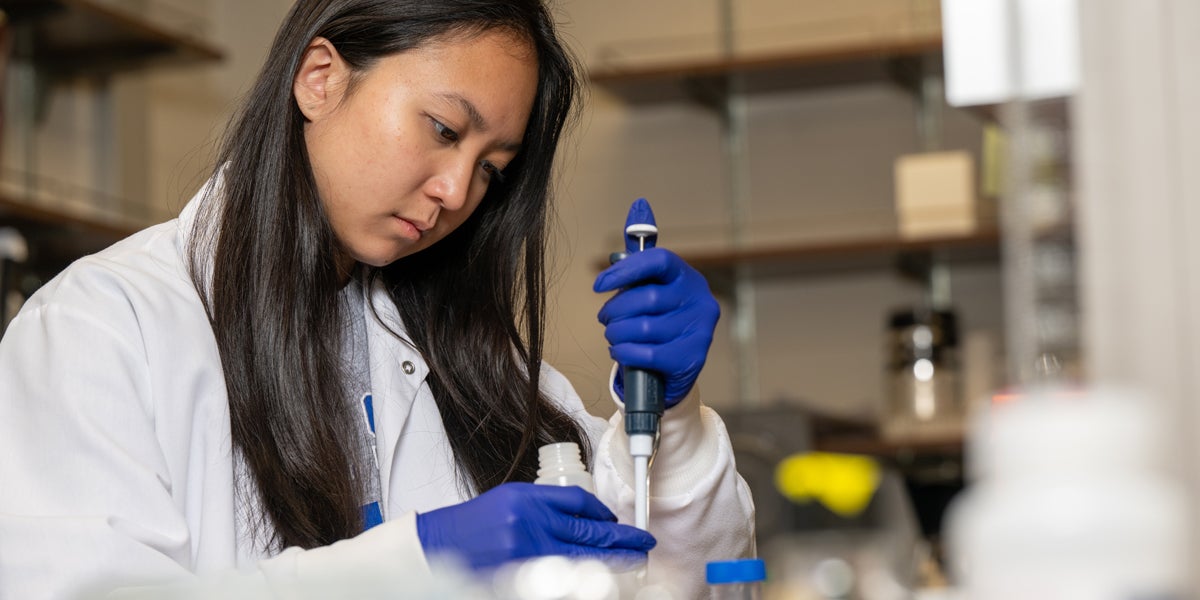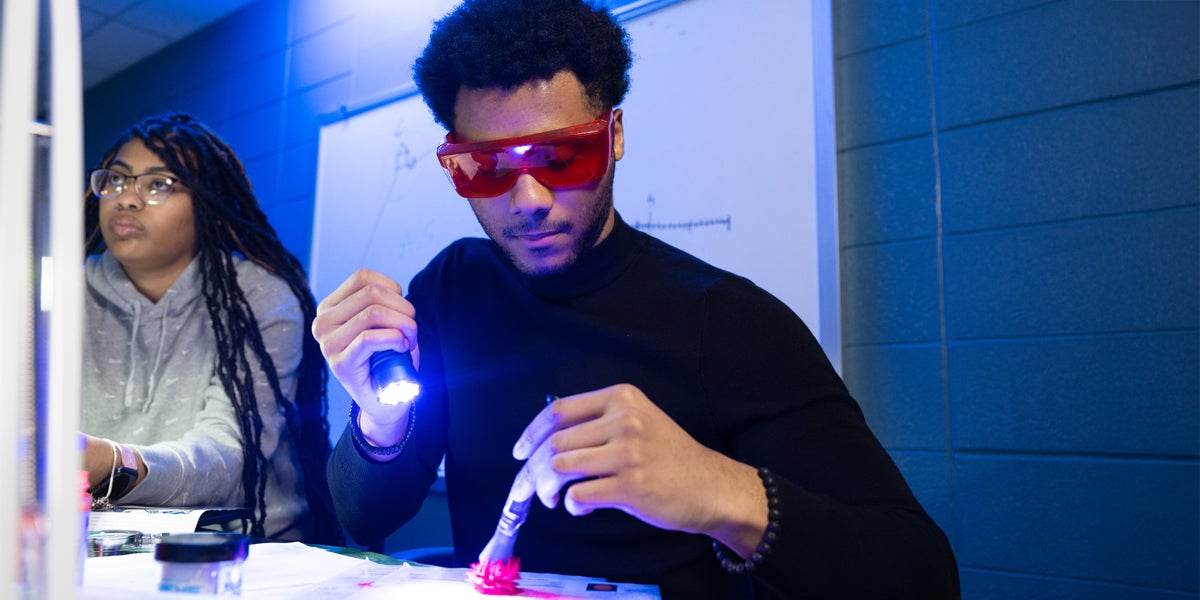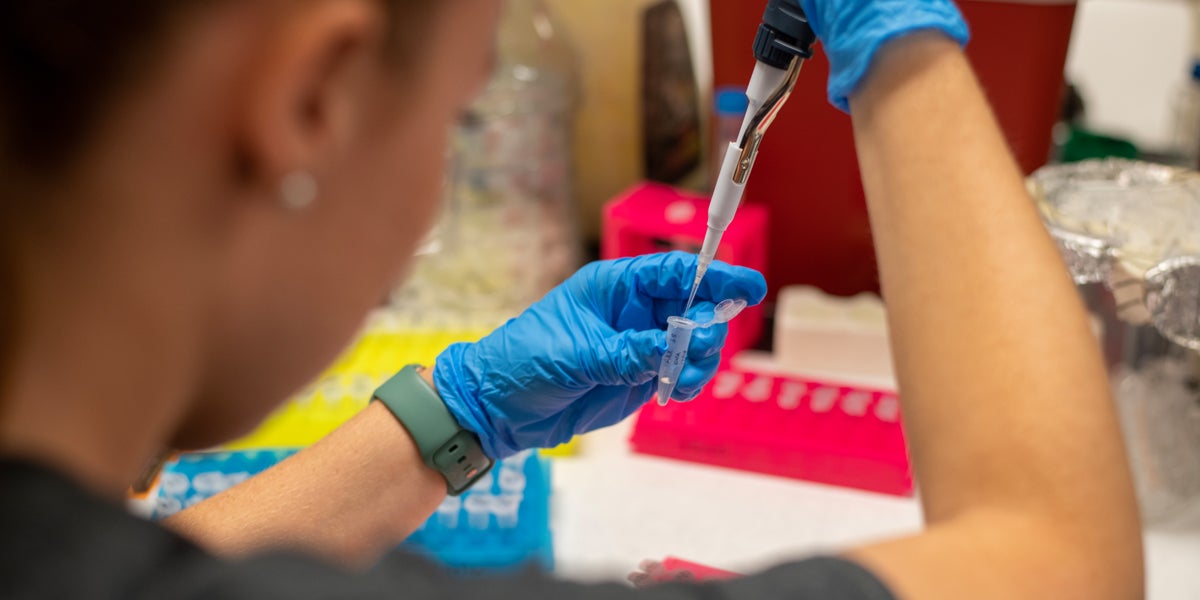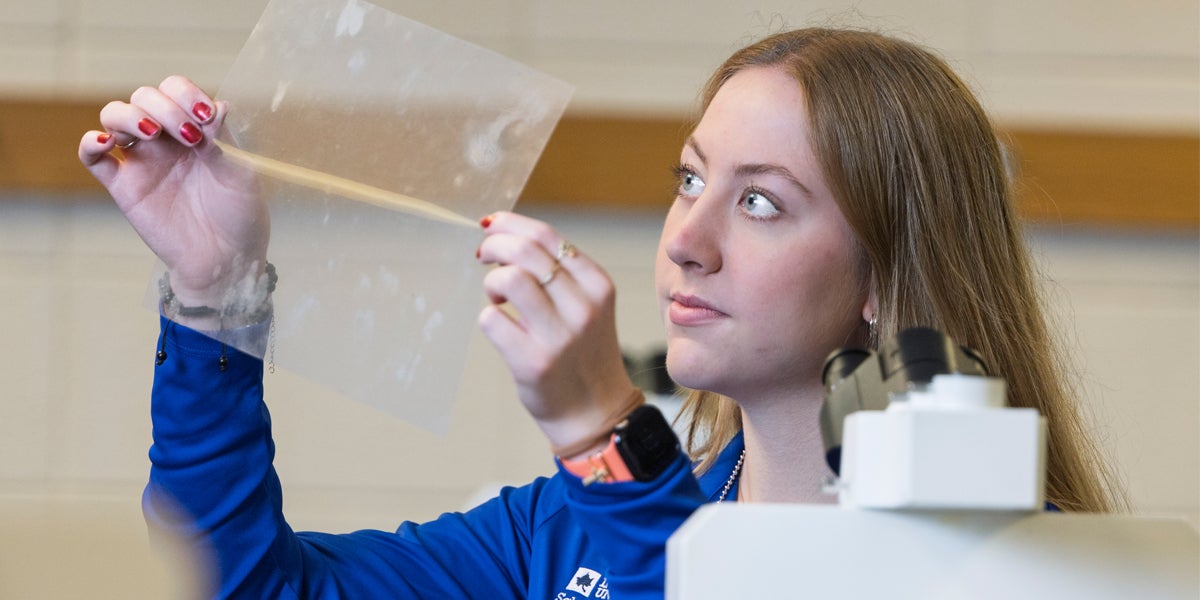Why Earn a Bachelor’s Degree in Forensics at Indiana State?
The Forensics Bachelor of Science program at Indiana State University is your gateway to an exciting career where science meets criminal justice. The hands-on, multidisciplinary program blends biology, chemistry, and forensic techniques incorporating criminal justice coursework. You will develop essential skills needed to collect, analyze, and interpret physical evidence used in the legal justice system.
Learn from Our Excellent Faculty
In the Forensics BS program, you’ll be taught by professors across multiple disciplines in the College of Arts and Sciences, and particularly in the Department of Biology. Our instructors are passionate about mentoring and helping you get involved in research early on in your degree. With small class sizes, you’ll receive personalized support for research, internships, and career planning.
Participate in Hands-On Learning
As a forensics major, you won’t just sit in the classroom – you’ll work in state-of-the-art laboratories, mock crime scene spaces, and internships with local and regional agencies. You’ll gain real-world skills in evidence collection, lab techniques, and crime scene analysis.
What You'll Learn in the Forensics Program
The BS in forensics emphasizes laboratory analysis and crime scene investigation. Key areas of focus include:
- Physical sciences: Study biology, chemistry, physics, and statistics as a foundation for the application of the physical sciences in a laboratory or field setting.
- Laboratory skills: Participate in hands-on learning in labs with state-of-the-art equipment to learn proper data analysis and crime scene interpretation.
- Critical thinking: Learn to evaluate evidence and draw logical conclusions.
- Communication: Practice writing reports and presenting findings clearly to scientists and the general public.
Required courses include principles of biology, general chemistry, general physics, introduction to criminalistics, criminal investigation, statistics, and the judicial process.
You will also choose between two concentrations so you can tailor your degree to match your specific goals in forensics.
Concentrations
The Forensic Science concentration is ideal if you want to work in a crime lab or pursue graduate studies. This concentration includes advanced science courses and lab work to prepare for careers in disciplines such as forensic analysis or DNA technology.
Required courses include fundamentals of molecular biology, human anatomy, human physiology, cellular and microbial biology, genetics, analytical chemistry, organic chemistry, and biochemistry. Electives include forensic biology, forensic geology, advanced chemistry courses, and others.
The Forensic Studies concentration offers a flexible path with fewer total credits and a broader range of electives in areas including anthropology, geology and soil analysis, sociology, and legal studies.
Required courses include forensic biology, analytical chemistry, and forensic geology. Electives include soil genesis and classification, forensic anthropology, earth science, geochemistry, legal research, policy implications of genomic science, genetics, sociology of deviant behavior, and others.
Transfer Credit
Indiana State University accepts credit from regionally accredited colleges and universities within the United States, and from selected schools located outside the United States. Credit also may be granted for military training and experience. Previously earned college credit can be applied toward completion of the program per Indiana State's transfer guidelines.
Career Possibilities for Forensics Majors
Graduates from the Forensics BS program are prepared for in-demand positions in crime laboratories, law enforcement agencies, medical examiner offices, and private forensic laboratories. Many graduates work as forensic science technicians, crime scene analysts, DNA analysts, toxicologists, trace evidence analysts, detectives, and criminal investigators. Our graduates are also prepared for advanced degrees in forensic science or related scientific studies.

Maximize Your Experience at Indiana State
Explore our Honors College to learn how you can maximize your college experience with faculty mentors, undergraduate research, internships, and Honors housing. Students in the Honors College also enjoy opportunities to travel across the nation and abroad for conferences, service-learning trips, and immersive academic and cultural studies.
Learn About the Honors College-
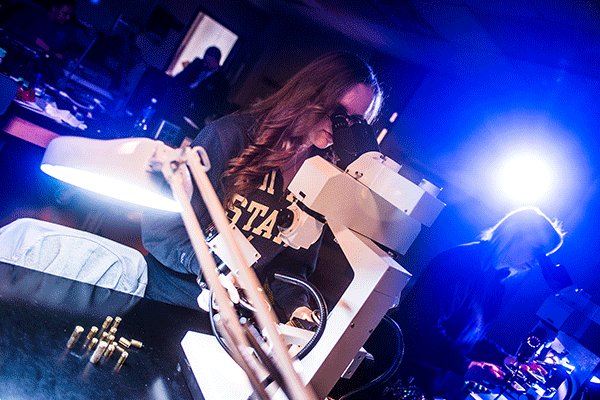
Criminology and Criminal Justice (BS)
Bachelor's
-
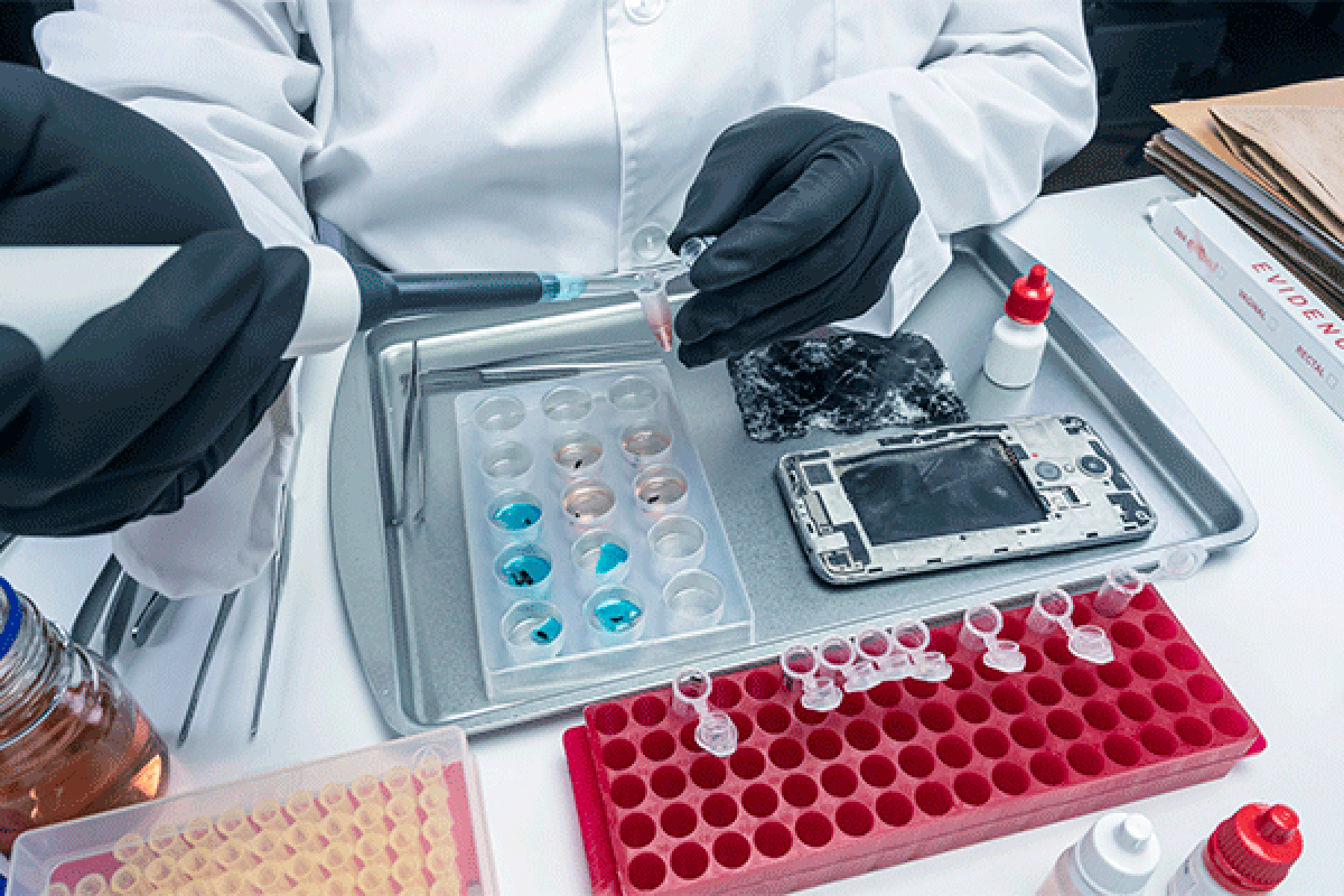
Digital Forensics Certificate
Undergraduate Certificate / Licensure
-
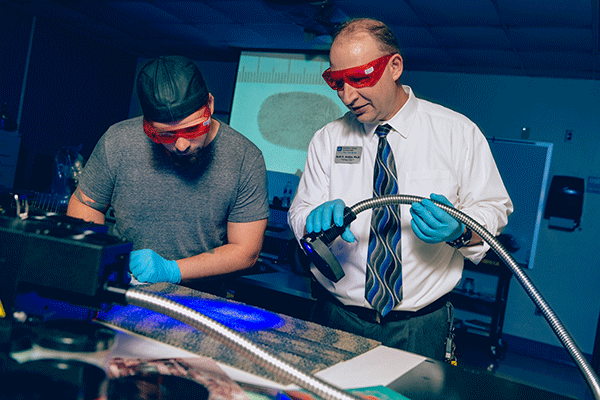
Intelligence Analysis (BS)
Bachelor's
